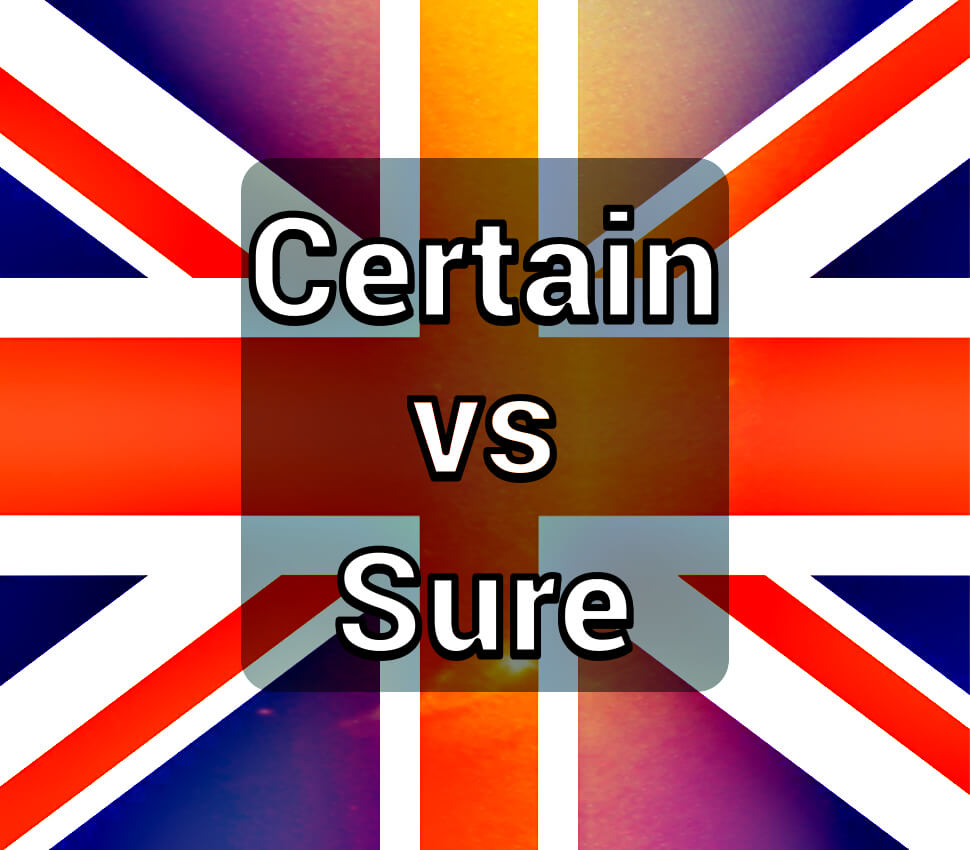These two words are very similar in meaning.
In most situations, we can use either one.
But not always.
If you are wondering what makes them different, then read on.
Similarities
When you are confident that you know something, or when you believe that something is true, you can use both certain and sure.
Furthermore, if you believe that something is correct and reliable, or that something is definitely going to happen, then once again you are free to use both certain and sure.
|
|
|
|
As you have seen in the examples above, there is basically no difference in meaning.
That being said, there are some differences you might want to be aware of.
Difference #1
Strength.
The word certain is a stronger word.
You could say that “certain” means something similar to “very sure”.
(Although try not to say that. “Very sure” is not the best choice of words 🙂 )
Whenever you want to say that you strongly believe that something is true and correct, my advice to you is to use certain.
|
|
Difference #2
Another difference is that the word sure is a more common word, especially in spoken English.
This is because “certain” is generally regarded as a slightly formal word, so people are less likely to use it.
|
|
Difference #3
There is one last difference in how certain and sure are used that I want to mention.
When you want to say that something is guaranteed to happen, or that it cannot be avoided, you should use the adjective certain.
|
|
|
|
|
Once again, this is not a rule that you must always stick with no matter what.
But the word certain is a better choice in contexts like these, especially in the last three examples.
However…
|
|
In the examples above, the word sure does not work and certain should be used instead.



Leave a Comment